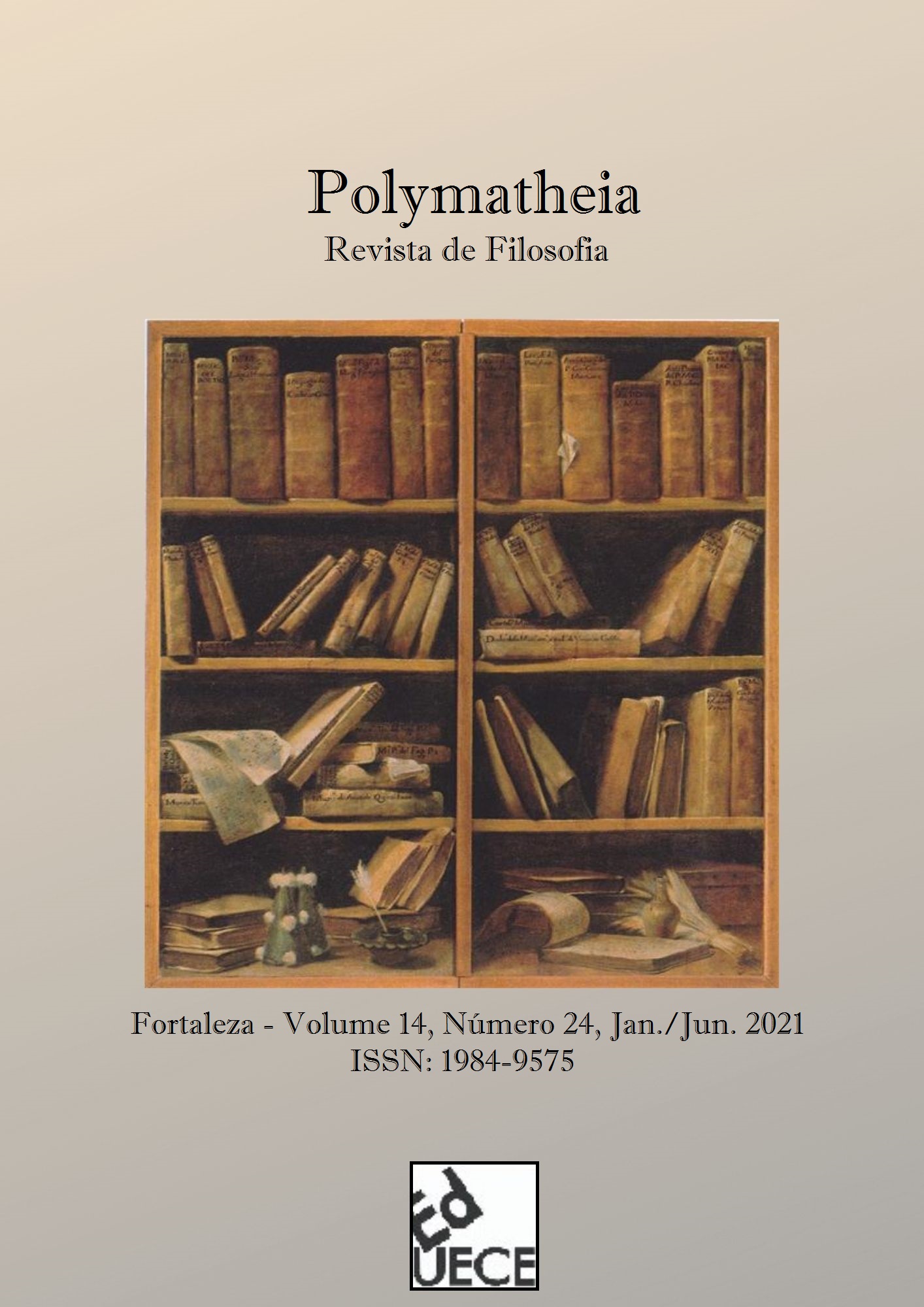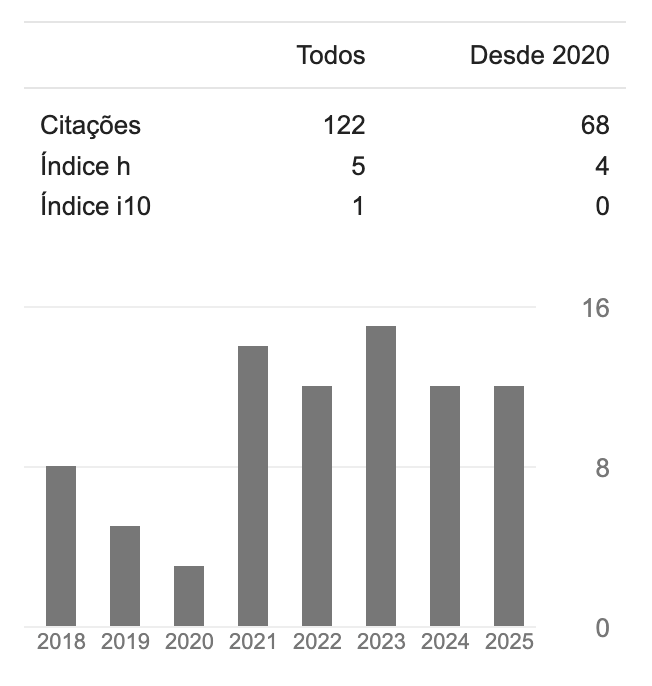ENTRE PEIRCE E ROCHAT:
QUESTÕES CONCERNENTES AO DESENVOLVIMENTO DE AUTOCONSCIÊNCIA NA INFÂNCIA
Mots-clés :
Autoconsciência, Desenvolvimento, Infância, Cognição socialRésumé
Em que etapa do desenvolvimento o ser humano passa a ser consciente de si mesmo? Tal autoconsciência exige uma mediação simbólica? Neste artigo, analisamos o problema da autoconsciência infantil à luz das contribuições de Peirce e Rochat sobre o tema. Fazemos uma reconstrução das ideias de Peirce, tratando do problema das cognições discursivas e intuitivas. Colocamos, então, a tese de que não há autoconsciência nas crianças de pouca idade frente às pesquisas desenvolvimentais de Rochat, que sugerem que existem níveis de estados mentais e de autoconhecimento que atravessam níveis discursivos e não-discursivos da experiência, exigindo uma revisão da tese de Peirce. Ao final, exibimos o caráter intersubjetivo ou social da autoconsciência, que acontece constitutivamente com “outros em mente”.
Téléchargements
Références
BERTENTHAL, B.; FISHER, K. Development of self-recognition in the infant. Developmental psychology, v. 14, pp. 44-50, 1978.
HEIDEGGER, Martin. Introdução à filosofia. Trad. Marco Antonio Casanova. Petrópolis: Ed. Vozes, 2008.
KANT, Immanuel. Antropologia de um ponto de vista pragmático. Trad. Clélia Aparecida Martins. São Paulo: Iluminuras, 2006.
MERLEAU-PONTY, Maurice. The primacy of perception. Trad. James Edie. Northwestern University Press, 1964.
NEISSER, Ulrich. Five Kinds of self-knowledge. Philosophical Psychology, v. 1, pp. 35-59.
NEISSER, Ulrich. Two perceptually given aspects of the self and their development. Developmental Review, vol. 11, pp. 197-209, 1991.
PEIRCE, Charles. Questões sobre certas faculdades reivindicadas para o homem. In:____ PEIRCE, Charles; FREGE, Gottlob. Escritos coligidos. São Paulo: Abril Cultural, 1980. (Os pensadores).
PEIRCE, Charles. The collected papers of Charles Sanders Peirce. Cambridge: Harvard University Press, 1994.
PIAGET, Jean. Play, dreams and imitation in childhood. New York: Norton, 1962.
ROCHAT, Philippe. (org.) Early social cognition: understanding others in the first months of life. London; New York: Psychology Press, 2014.
ROCHAT, Philippe. Five levels of self-awareness as they unfold early in life. Consciousness and cognition, v. 12, pp. 717-731, 2003.
ROCHAT, Philippe. Others in mind: social origins of self-consciousness. New York: Cambridge University Press, 2009.
ROCHAT, Philippe. (et al.). Social awareness and early self-recognition. Consciousness and cognition, vol. 21, n. 3, pp. 1491-1497, 2012.
ROCHAT, Philippe. The infant’s world. Cambridge: Harvard University Press, 2001.
ROCHAT, Philippe.; ZAHAVI, Dan. The uncanny mirror: A re-frame of mirror self-experience. Consciousness and cognition, v. 20, n. 2, pp. 204-213, 2010.
ROCHAT, Philippe. (et al.). Young infants' sensitivity to movement information specifying social causality. Cognitive development, v. 12, n. 4, pp. 537-561, 1997.
SANTAELLA, Lucia. Mente e/ou consciência em C. S. Peirce. Cognitio, v. 17, n. 1, pp. 119-130, 2016.
USLUCAN, Haci-Halil. Charles Sanders Peirce and the semiotic foundation of self and reason. Mind, culture and activity, v. 11, n. 2, pp. 96-108, 2004











